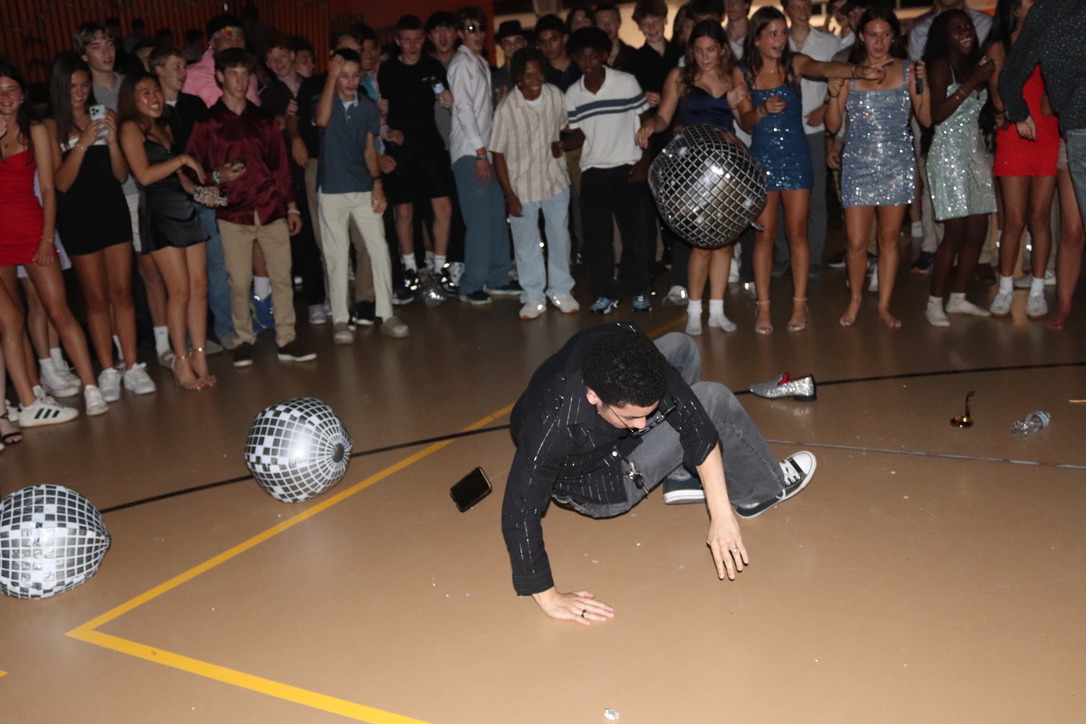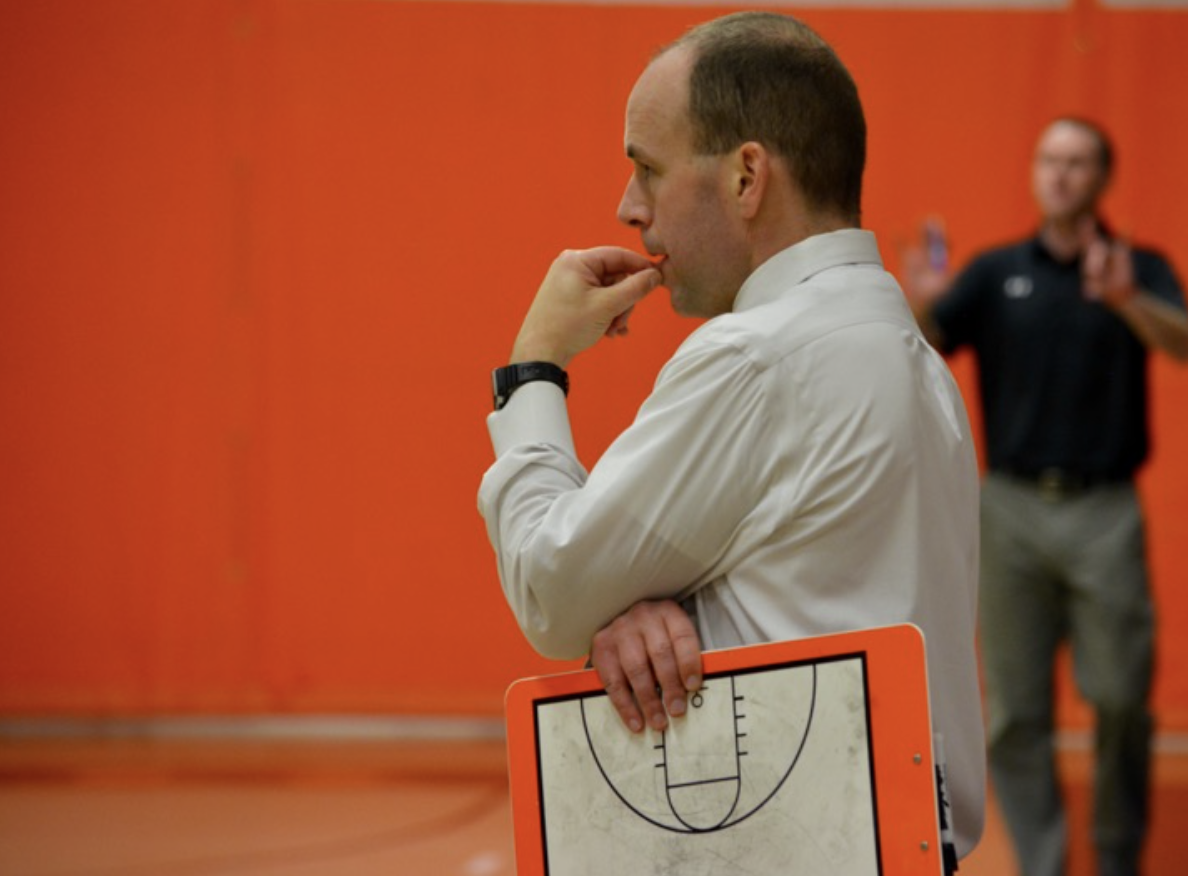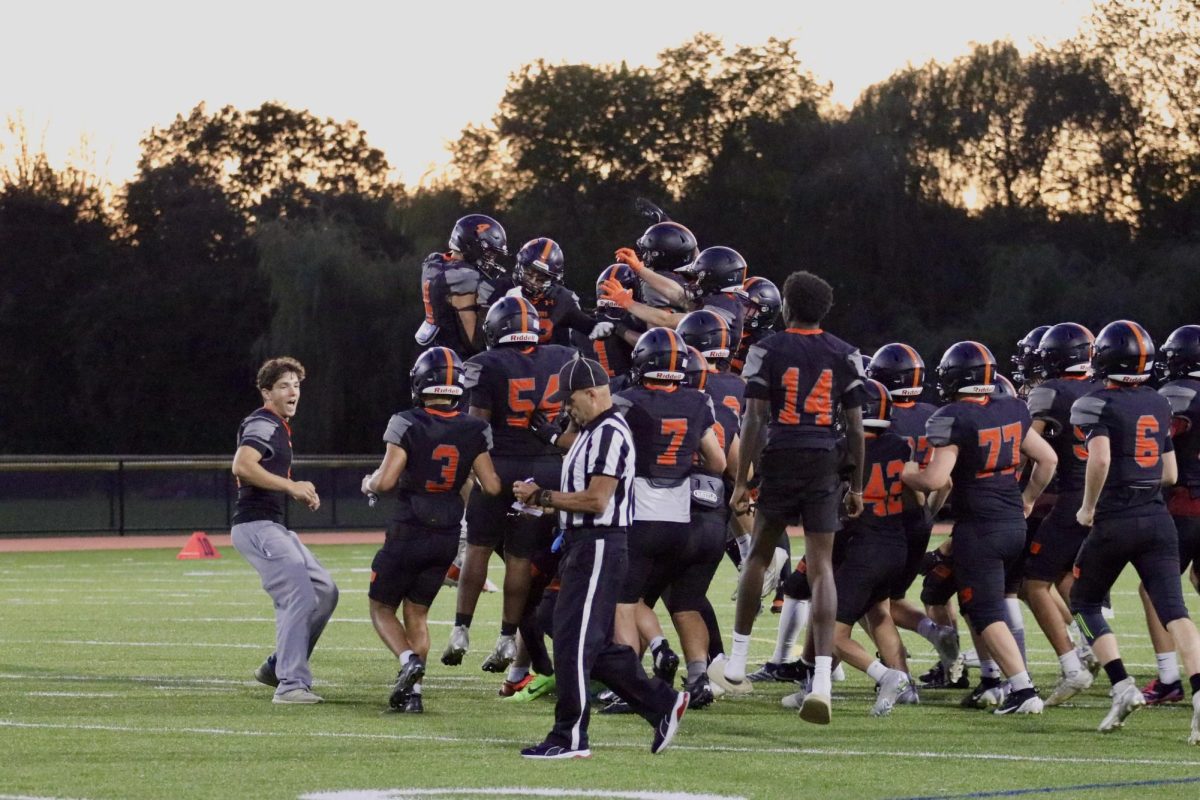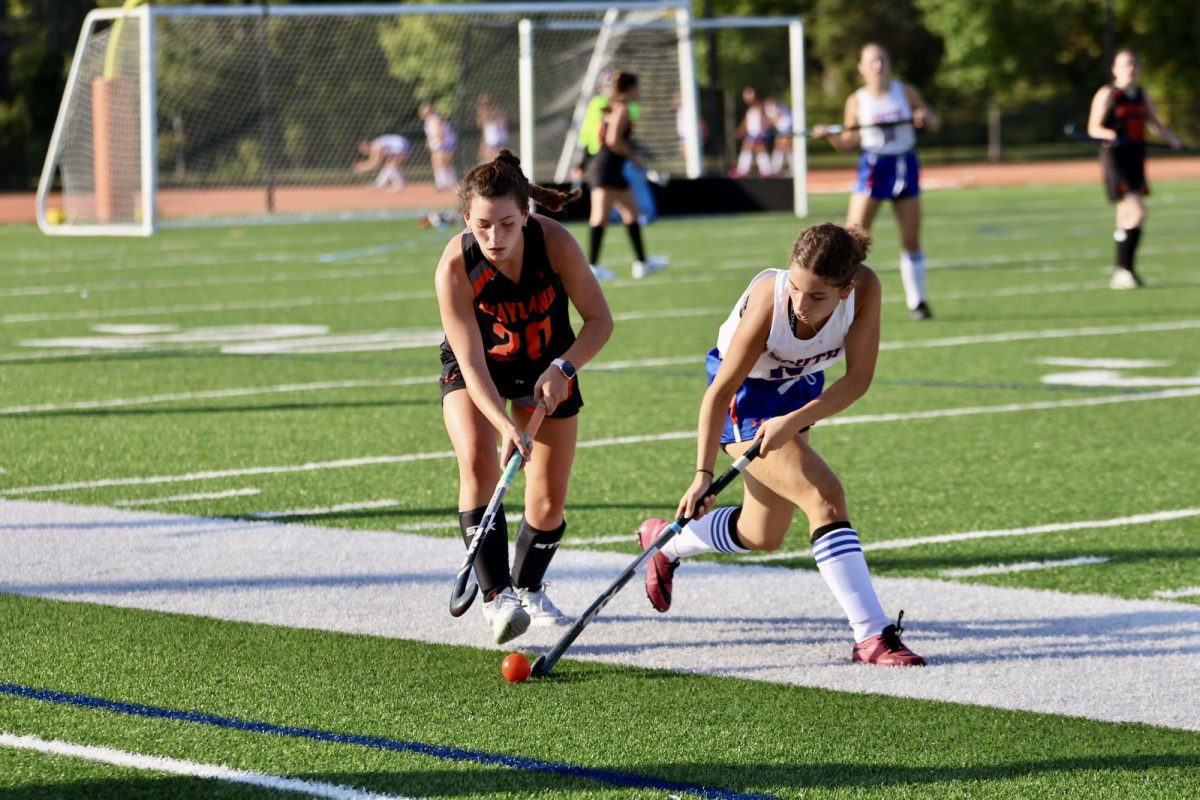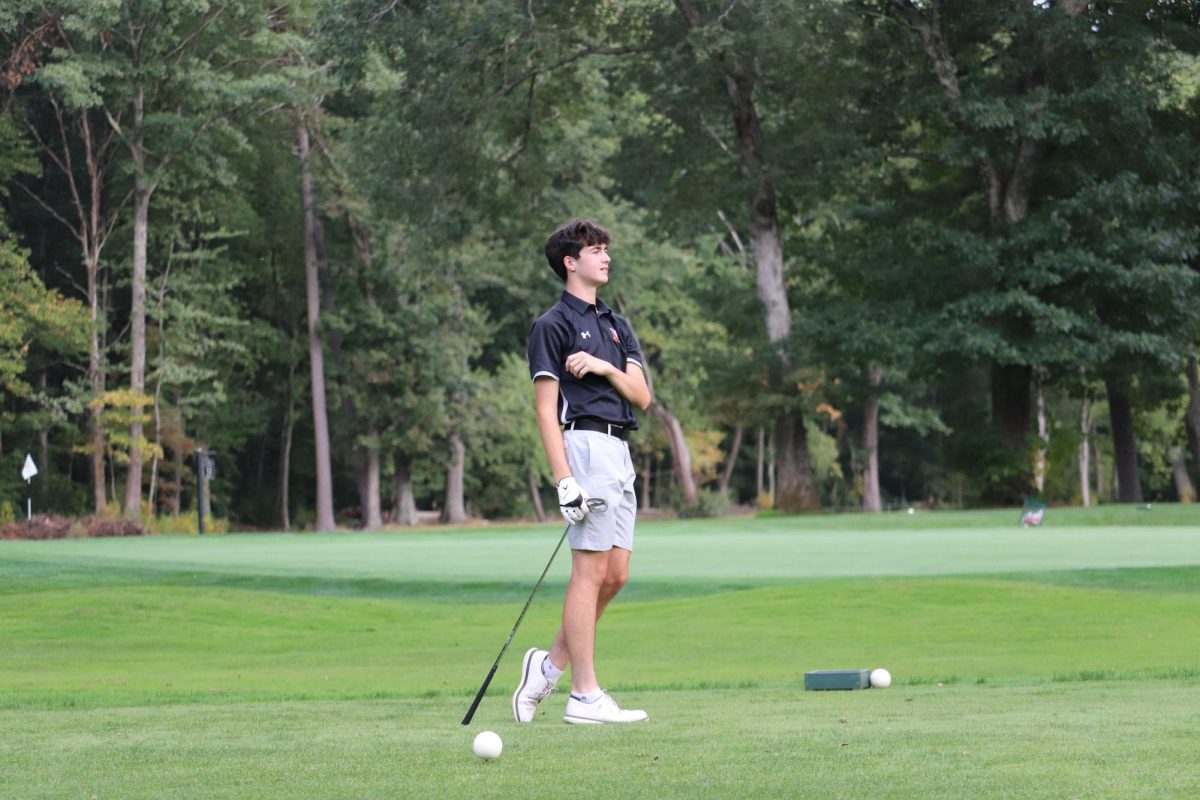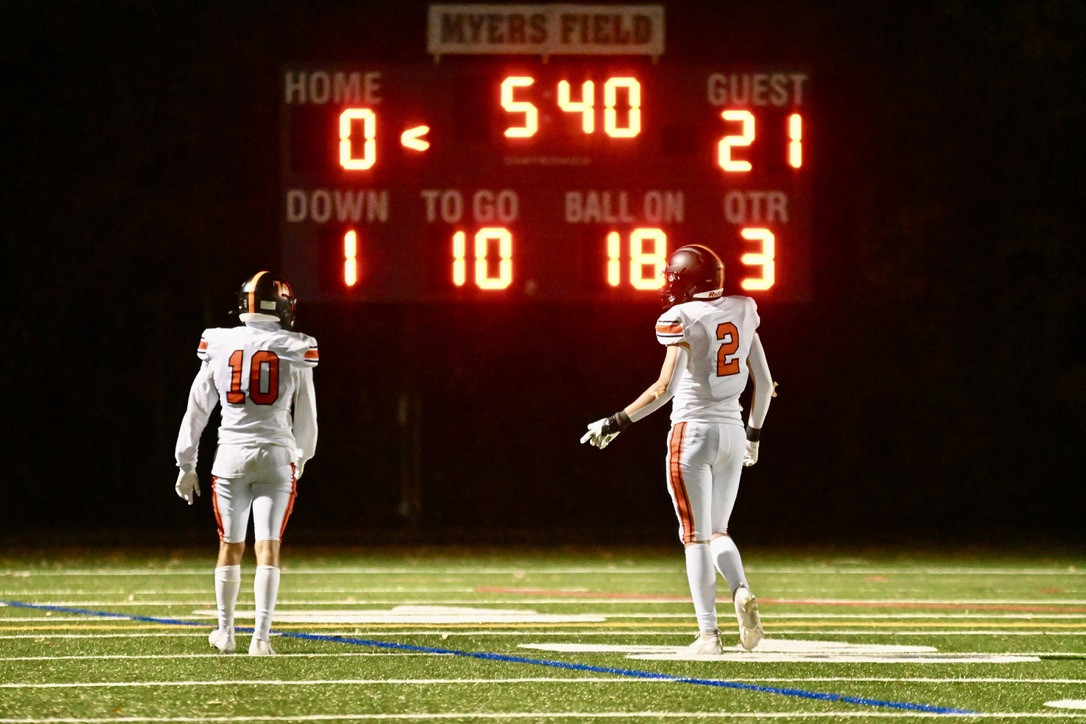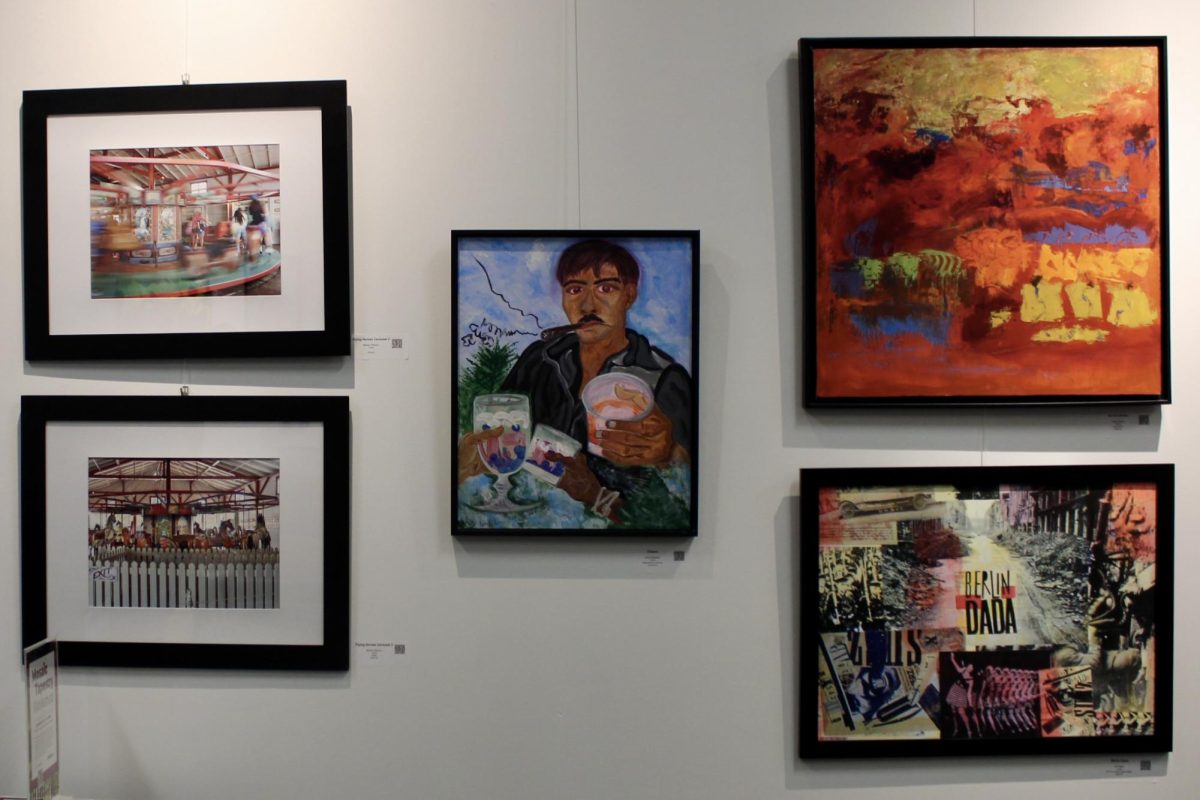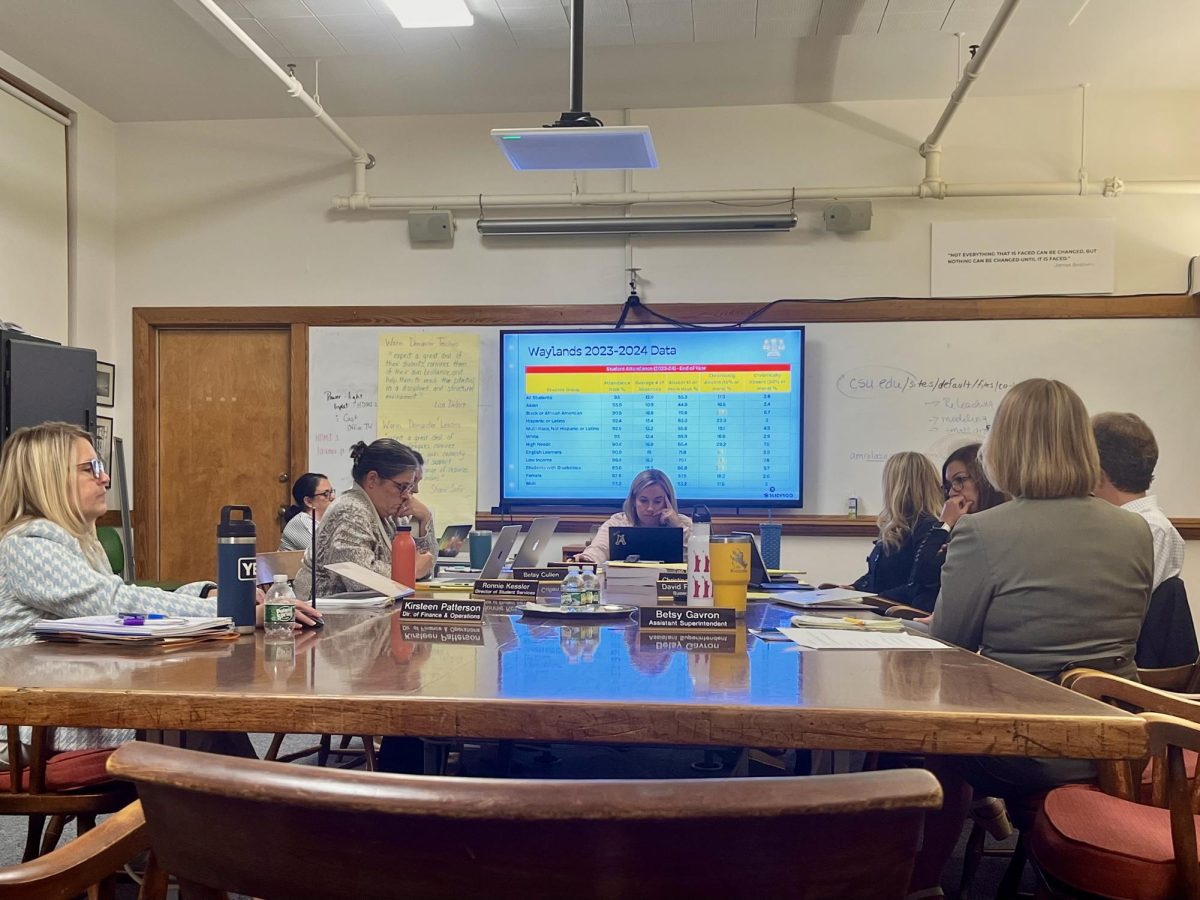
Anyone who takes a trip to the Principal’s office (whether it’s for standard or shady reasons) these first few days of school will notice a new resident next door – Mr. Bayard Klimasmith. With Ms. Mizoguchi on maternity leave this year, the tall, talkative WHS alum is taking over as Assistant Principal. We sat down with him after Freshmen Orientation last week to welcome him back. On the discussion list? His particular teaching philosophies, Wayland then and now, prom in the 1980s, and…ultimate frisbee?
You graduated from Wayland in 1987?
Yeah, 1987.
What does it feel like, to come back?
I got a great education here. Teachers were outstanding, and my sense from the faculty is that that hasn’t changed. So that feels good, to come back and support that tradition.
Personally, there are some funny things. I had a horrendous speech to be class President, my senior year – I got like, two votes or something – it was just really embarrassing. I hadn’t thought about that for twenty years until I was standing in the auditorium today and I thought oh my gosh, this is terrible! And I was telling the department heads, the other day, that I hadn’t remembered that my prom date had insisted that I wear a cummerbund and bowtie that matched her dress. So, I ended up wearing a peach cummerbund and bowtie. Who wants to remember that?
So there are good memories and there are bad memories.
Mostly good though. It’s a good place to be. It seems, again, that if you’re here you don’t understand how special it is – but in Wayland, it’s cool to be a student.
What do you mean by that? What do you mean by student?
I mean – to study, to do well in class, to inquire, to be curious, to make connections with the faculty. That’s all – I don’t know if cool’s the right word – but that’s normal, here. And I’ve worked in schools over the last 14 years where that isn’t cool. Where if you study too hard you’re a geek, you’re a bookworm, you’re a kiss-up, you’re a whatever. I don’t know if people in Wayland know that, because they haven’t gone to other schools. But from my perspective, it’s something I really like about Wayland. I liked being a student here for that reason.
Is there anything major that’s changed about the school since you left?
Alarmingly, no. I mean, there’s small stuff. We used to have a schedule that had small group and big group periods. There also used to be common areas in each of the buildings, which were like student areas. Now, I don’t think any building still has one. They’re all classrooms. Most of my teachers are gone – Mr. Altschuler is still here, Mr. Porrell is still here, Chris Brown, the trainer, is still here, Anne Gray, the secretary, is still here, Mrs. Miller is still here. And what else has changed? It’s very much the same.
What sort of activities did you do?
I did basketball, although I was kinda lousy at it. I did soccer, and I did track. That was more or less the first two years, and I was involved in a Latin club. A third of the student body was in it. I mean, we had chariot races, we had a musical. It was huge. Then I had an injury, and I stopped playing basketball. The music director asked me to try out for musical, and I did, and I got a lead, and I started doing musicals. I sang in the choir, and that kind of stuff.
Do you remember what musicals you did?
Yeah, it was Cabaret, I was Cliff, the reporter in Cabaret, and then My Fair Lady and I was Mr. Doolittle, Doolittle, the father. The “I’m getting married in the morning” guy. It was really fun.
What about watching all the freshmen come into the school today? Did that feel familiar to you?
Yeah, that felt familiar. Although, I think one of the big things that’s changed, but isn’t about Wayland, per se, is that I think teenagers are more open-minded than they were in the mid-80s. That might have just been the mid-80s, which was a particularly close-minded time, the Reagan era. It was just a more conservative time. For example, if you were a sexual minority in the ’80s, you were doomed. So if you were a gay kid, forget it. But teenagers are, in some ways, always on the leading edge of civil rights. They’re the ones to say to their parents like, what’s the big deal?
You know, and that’s for better and worse. But generally speaking, it’s good to listen to a teenager’s sense of justice, because they operate more often in a universal mindset. Like, if this is okay for me, why isn’t it okay for that kid? Whereas older people develop biases sometimes, and that’s actually one of the reasons I love working in high school. Because teenagers tend to push around the boundaries, I’m learning about the boundaries — and I haven’t even thought about the boundaries.
Then is there a certain teaching philosophy that you identify with, and can you explain it?
The ideal teacher is a teacher who’s a warm demander. They provide personal engagement, interact with their students, get to know them by name, all of that. Saying hello to them, encouraging them in their work, again being warm. Giving them positive feedback when it’s there, and so on and so forth. But they’re also a demander, so they have high expectations for the students, and they state those expectations explicitly. When they give feedback they start with the expectations. Instead of saying, “Hey, nice job,” they start with “The purpose of this assignment was to help you develop strong paragraphs. In your work, you did this, this, and this. This is how what you did compares to the standard. The next thing you need to do is this.” So that’s what I’ve learned from my experience, and it is certainly something I have brought into other work. I look for that.
So then, how do you expect your time at Wayland to compare to your previous experience?
Last year, I did my administrative internship at Arlington High School. Arlington is just that much, sort of closer in to the city, that much more mixed, that the culture is just not quite as suburban as Wayland. Don’t get me wrong, the culture here was stratified when I was a student, and I bet it’s stratified now. There are kids for whom the school is just fantastic and there are kids for whom we need to do better. I’m sure that’s the case. It was when I was here. But it wasn’t, it isn’t, as visibly stratified as some other places I’ve worked.
I worked for an organization, as a program director, which runs a network of schools that serve vulnerable youth, exclusively. So all of those schools were in urban areas, all of our students were kids who had been adjudicated – in other words, they’d been in trouble with the law, they’d been sentenced for something, they’d gone through the judicial process, and they were coming back to school. A lot of them were at high risk to drop out. It couldn’t be more night and day with a place like Wayland. There, the big phrase was “drop out.” Does anybody worry about drop out in Wayland?
I don’t think so.
Exactly – and there, the issues were like adolescent literacy, getting 17-year-olds to be able to read at a 10th grade level. Whereas here, your ninth graders read at an eleventh grade level. It’s just a completely different world. Over there you’re with dealing cycles of poverty, where kids were being brought up to believe that they would be unsuccessful. Whereas your average Wayland kid knows, for a fact, that they’re at least going to get a B.A., if not a Masters or a Ph.D. They just know it. I mean you know it, right? There’s never been a doubt in your mind, whereas these kids, many of them, like in one place, doubted whether or not they’d live past the age of thirty. That was wonderful training for me. Just to help me see a school from a student’s perspective.
So then how did you end up back here?
Well, the story is that I did professional development work for about seven years. Then my wife got a Fulbright to go – she’s a professor at UMass – to go to the Czech Republic, for a year. So we left, we just left our jobs, rented out our house and went, with our daughter. But when I came back I didn’t have a job. So I did one year of being an independent consultant, working with charter schools and coaching teachers. Then I went to Harvard, to get my Masters in School Administration, last year. When I saw Wayland come up on the list of possibilities, I said yes, I want to do that! So I feel lucky, I feel very, very lucky. No complaints at all. The principal that Mr. Tutwiler worked for in Boston, as a teacher, was the same principal that I interned with last year, at Arlington. When I found out about the job I immediately called that principal and said what do you think? And he’s like, ah King Tut!
They call him that here too.
So that was that.
How do you feel you’ve mixed in with the faculty? Getting to know everyone?
I’m on a campaign to memorize all their names by the first day. I’m almost there. The students are going to be a whole other thing. When I start getting hit with the students, I don’t know how I’m going to memorize all their names. It’ll happen though.
What do you do outside of school?
I play Ultimate Frisbee. There’s something called the Boston Ultimate Disc Association, or BUDA, and they have a couple of leagues. I’m playing in a club league, so it’s a team that’s been around for a couple years. And we bought a new house in December, so I’ve been painting and putting up drywall, and all that kind of stuff. I also still do a lot of hiking, with my daughter. We took a backpacking trip this summer, and we like to go to the Boston Breakers – you know, women’s soccer? Just being a dad.
What’s your Frisbee team called?
This year we’re going to be called the Moosehead Cowpokes.
It’s a good name.
Or something like that. It changes from year to year.
I don’t know if you know this, but there’s an Ultimate team here.
I’ve gotten a sense of that. I just talked to Mr. Daniel and Mr. Hopps, who both play.
Do you plan on subbing in with that team, maybe? Would you be open to that?
Yeah, sure. Definitely!

![During the WHS club fair, senior Molly Bergeron is watching a student sign up for her club, Eliza J. Norton Foundation. In this club, students meet every week and come up with ideas to spread the message. "[This club] really touches a lot of people in the town," Bergeron said.](https://waylandstudentpress.com/wp-content/uploads/2025/10/IMG_1335-1200x800.jpg)



